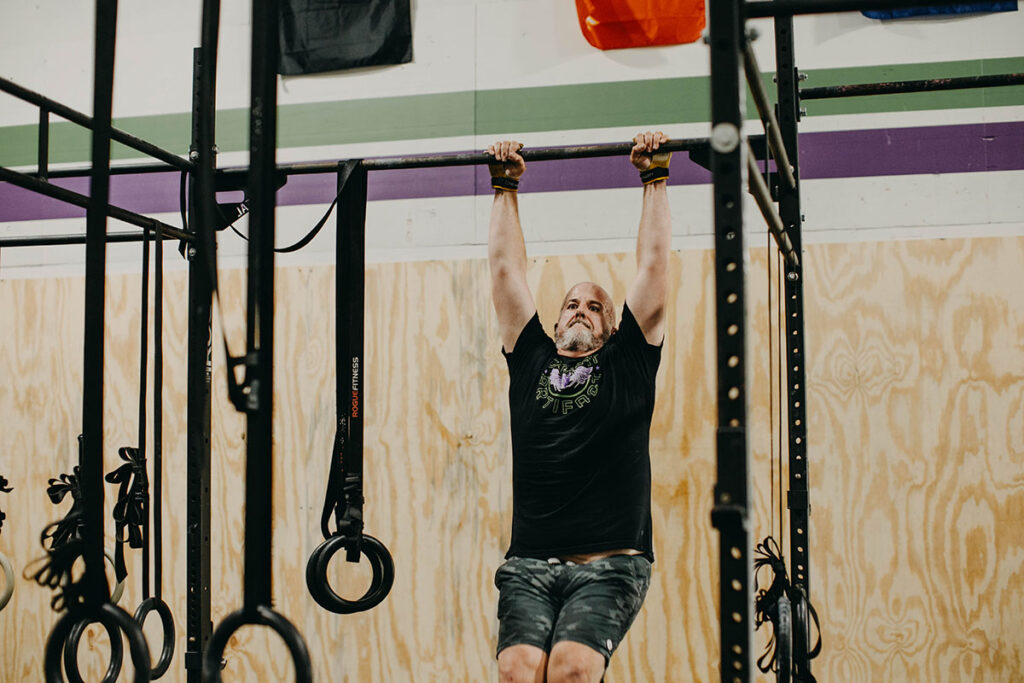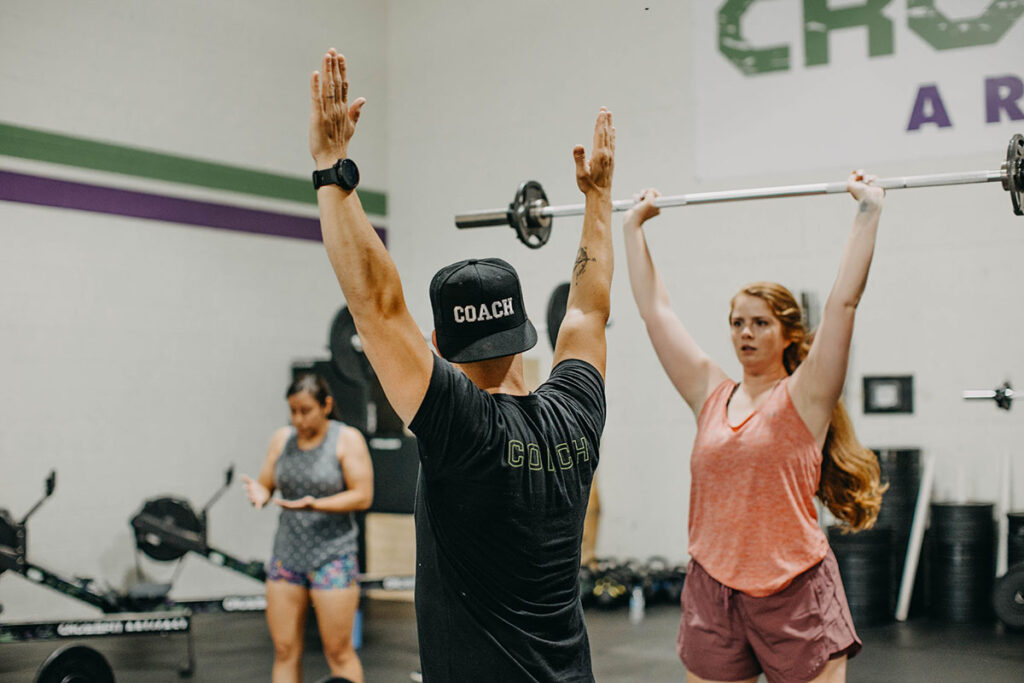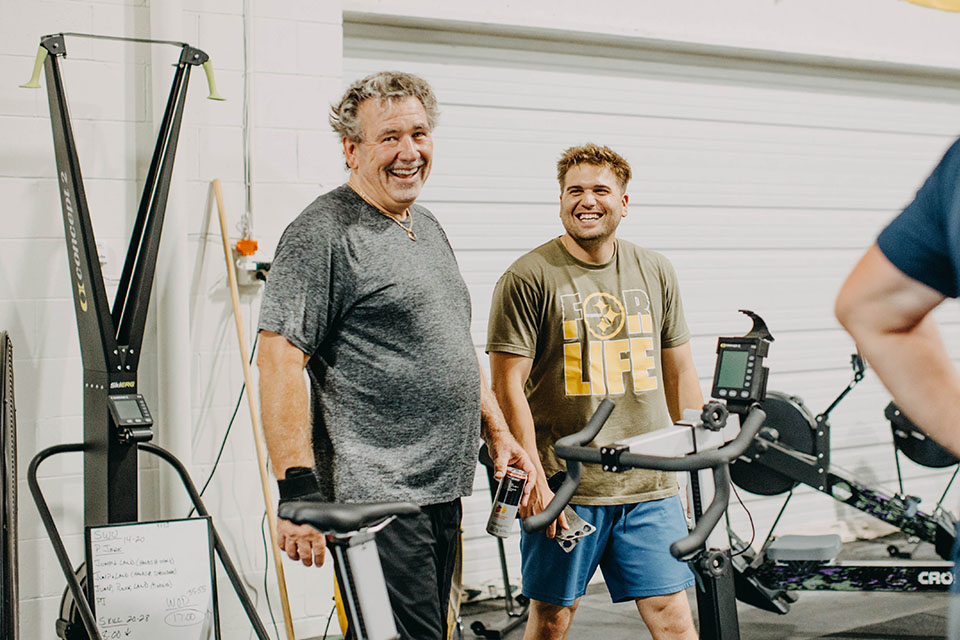Feeling like you’re stuck in a rut at the gym? Is stress holding you back? Keep reading to find out how stress can impact your workouts and how you can begin to combat it!
We’ve all been there. It’s a chore to motivate yourself to get to the gym. Maybe you feel tired, sluggish, or just plain blaaaah.
Life has its way of throwing the unexpected at us at the most inopportune times. While we can’t always change the things that happen to us (that’s life, right??), we can absolutely make a conscious effort to combat our stress levels.

What causes a fitness rut?
There are so many factors at work that it would be impossible to list or cover all of them, but things like stress, family obligations, sleep disturbances, poor diet, and even the weather can all contribute to feeling out of sync.
Stressors in our lives are such a huge factor when it comes to performance in the gym that it would take multiple blog entries to cover it. For the sake of this blog post, we’ll stay relatively superficial, but this topic is definitely worth more of an in-depth study.
Stress is multi-faceted, consisting of pressure, nervousness, fear, panic, and anxiety, all of which can negatively affect your CrossFit performance, which is a huge component when it comes to lack of motivation.
It’s important to note that stressors affect each individual differently, so each athlete’s tolerance and response will be entirely different.
Not all stress is bad, as a little stress prior to a workout will likely increase our level of performance. You know what I mean… the nervous jitters, multiple trips to the bathroom, the wringing of hands before 3-2-1- GO… just me? 😉 It’s the negative stress in our lives that really wear our bodies down, which will absolutely translate to our performance, both in the gym and out.
When stress becomes chronic, it’s no longer beneficial to an athlete.

How do you know if you’re stressed?
There are a number of ways our bodies respond to an increase in stress. These symptoms can be anything from having clammy hands to difficulty sleeping, to energy loss, and even negative thoughts and self-talk.
Because many CrossFit movements require a ton of concentration and skill, one can see how even the few symptoms of stress listed above could negatively impact performance at the gym.
Many studies on impacts of stress have been conducted and used in sports performance synopsis, finding that mental performance training is essential to break the negative cycle stress has on an athlete.
For starters, becoming aware of the stress you’re under is vital to combating its effects.
We first must identify what is causing us to feel negatively about ourselves or have a negative emotional response to our gym performance. If these thoughts aren’t benefitting you, they’re absolutely impeding you.
Writing down any triggers or scenarios that cause stress is a great first step. If you notice that X,Y, & Z make you feel less than stellar, take note! Really tune into your body and see what situations cause you to feel disheveled. If your heart starts racing and you feel like your head is spinning, that’s a good indicator that you’re becoming overwhelmed.
In addition to identifying stressors, it’s important for athletes to have the emotional support of a coach or fellow athlete they trust to share these scenarios with. Find an accountability partner you trust and let them in on your struggles. This doesn’t have to be an extremely personal tell-all (unless you want it to be!), but filling someone in on even the basics of what you’re facing is a great place to start. The great thing about community is that you don’t have to face stuff all on your own.

How do you combat stress once you’ve identified it in your life?
At CrossFit Artifact, we feel working out in a supportive setting is highly beneficial to relieve stress. That being said, it’s important to look at your goals and make sure they are realistic and attainable. If you’re showing up to the gym expecting to run a mile in under three minutes, you’re probably going to leave feeling discouraged. Having realistic goals to meet in a realistic amount of time is huge.
Set a small goal to meet for the day. If you wake up feeling down and out, make a goal to get to the gym and interact with another athlete before class starts. That’s easy to do, will likely cheer you up, and is not performance based. It’s a small, attainable goal that you’re going to meet. It’s a great way to start a CrossFit class.
Take a good, hard look at all of the demands you have outside of the gym. We understand that it’s impossible to live life without obligations, deadlines, and, well, stress. However, it’s worth a look at what you’re agreeing to in life. Most of us say yes to far too many things and burn the candle at both ends. There are definitely seasons of life where this is necessary, but making a habit of giving too much of yourself is a sure-fire way to burn out.
Maintain close contact with your support group. If you have people in your life that uplift and encourage you, they’re invaluable when it comes to decreasing stress. Not only is it great to have someone who really listens when you need to get things off your chest, but it’s helpful to have someone who can evaluate things you have in your life that may not be beneficial to you inside OR outside the gym. It’s also important to remove people from your inner circle who are not supportive and demanding a lot of your time and emotional energy.

Find healthy alternatives to bad habits. If we’re stressed and looking for relief, we may eat unhealthy, spend way too much time on social media or Netflix, drink, or wallow (who wallows? Just me). Instead of our usual response to feeling overwhelmed and stressed, let’s try to find healthier alternatives. Soaking in the tub, getting a massage, reading a book, spending time in prayer, listening to calming music, or taking a walk are great and healthier alternatives.
Our thoughts are POWERFUL. Stop negative thoughts at the door. Make it a mental priority to stop negative thoughts at the “door” of your mind and refuse to allow them access. It’s an exercise and it takes work, but just like lifting weights, we promise the more you exercise control over your mind, the stronger you’ll get at fighting the negativity that tries to take up residence there. If we are constantly self loathing and telling ourselves how awful we are, our bodies will respond in kind. Look in the mirror and find ONE thing nice to say about yourself. Do it every day until you can come up with two things, then three, then make an entire list. Studies have shown that your very cells respond differently to positive talk versus negative.
We can promise you’ll feel less stressed after practicing any of our recommended stress relievers listed above!
Remember, some stress is actually beneficial and increases our performance, but too much stress is a hindrance to what we can do at the gym, can make us sick, and will absolutely cause us to lose motivation.
If you’re struggling with stress in the gym or out, please reach out to any of our coaches. Sometimes, even the act of sharing what you’re going through is a great stress reliever.
You are strong. You are capable. You are valuable. You are deserving of love and respect. You are not all alone. You can get through this. You are an overcomer!




